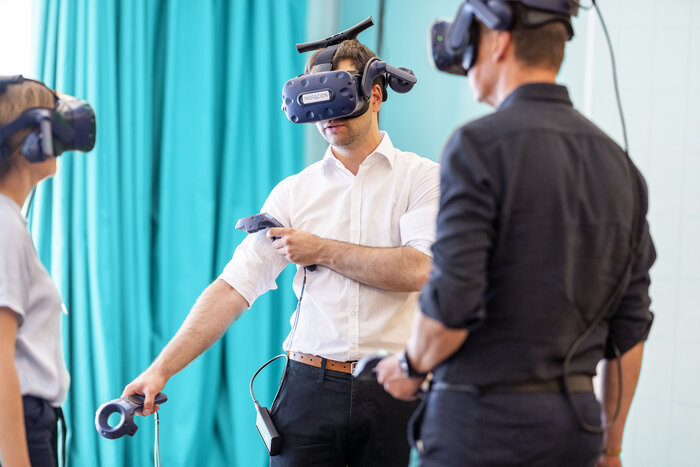Artificial intelligence in real estate

AI in the real estate industry
Opinions are divided when it comes to artificial intelligence (AI). Some see it as a savior, while others paint horror scenarios. Drees & Sommer takes a constructive approach and sees two positive dimensions: AI should make future project work in the real estate industry easier, while also ensuring demonstrably greater efficiency based on analyzed data in buildings and cities.
Klaus Dederichs, Partner and Head of Customized Smart Building at Drees & Sommer, is also certain: “AI is the only way to really understand how buildings work and how they can be optimally operated.” In future, we don’t just want to develop smart buildings, but also cognitive buildings that adapt to the needs of users.
Self-learning systems
However, it is still unclear whether AI can fulfill all expectations. After all, artificial intelligence is still a long way from being a self-learning and human-independent system. It needs people to tap into specific data sources. “You have to give AI a direction. You can’t empty a bucket of unstructured data over it and expect it to conjure up something from it,” says Ramy Ibrahim.
The 27-year-old mathematician has been working as a data scientist at Drees & Sommer since October 2019. His job is to find applications that will simplify our work in the future. For example, one use case that he has been working on for more than a year deals with service specifications and their evaluation. Another application that has already been successfully developed makes construction price forecasts based on historical data and current influencing factors.
Until he joined Drees & Sommer, Ibrahim had little to do with the construction and real estate industry. But now he is familiar: “An experienced project manager is guided a lot by their gut feeling.” If AI underpins the gut feeling statistically, they have a trump card up their sleeve that gives their client additional security.
AI and ethics
Markus Kluck is one of the leading digitalization experts at Drees & Sommer. One of his tasks was realizing the cube Berlin, which is the smartest building in Europe. Nevertheless, he does see obstacles when dealing with artificial intelligence. These include ethical issues that need to be considered at the latest when the machine is supposed to make decisions.
In addition, requirements such as cyber security and GDPR need to be implemented not only in new buildings, but also in existing buildings. He believes that patience is required here. “Much of what we will do will be on a trial and error basis. However, this must not happen on the construction site. Drees & Sommer therefore relies on a Smart Building Demonstrator in every Customized Smart Building project. This means sensors and software solutions are tested for connectivity, but also in terms of cybersecurity and GDPR. Only tested systems are then installed in the building. We need open IoT platforms and higher-level software solutions,” he says. “But all the effort will pay off.”
So where does Drees & Sommer stand in the race for AI and its benefits? “We’ve made a good start and are now among the front runners,” says Patrick Theis, who is responsible for AI at the Drees & Sommer Innovation Center. He goes on to promise: “We’re continuing to pick up speed.” Admittedly with a sense of proportion. “The biggest task is to find out what makes sense,” adds Klaus Dederichs. We won’t be cracking a nut with a sledgehammer.”
Our conclusion: Advanced AI applications are already having a groundbreaking impact on the construction and real estate industry. They enable sustainable and environmentally friendly planning and production, so space and resources can be used more efficiently. It is clear to see that AI is increasingly acting as a little helper for people and significantly increasing our efficiency. Joint efforts will enable us to continue working on innovative solutions to make the most of the potential of artificial intelligence in the construction and real estate industry.




